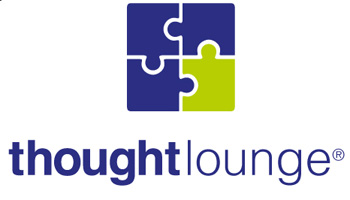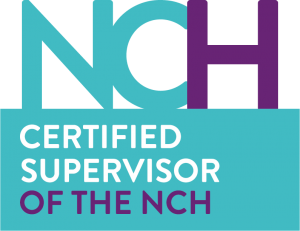Breaking the Cycle of Self-Deception: How Hypnotherapy, Coaching, and Counseling Can Transform Your Life

Have you ever caught yourself bending the truth, not just to others, but to yourself? Perhaps you’ve downplayed an emotion, justified a poor decision, or built a narrative to avoid facing the uncomfortable. The human mind is complex, programmed not only to believe in possibilities but also to deceive—both others and ourselves. This duality can serve us in some situations, yet in others, it becomes a barrier to personal and professional effectiveness, mental health, and the ability to lead authentic lives.
Lying and self-deception are more common than we might like to admit. They’re coping mechanisms, often employed to shield us from pain, rejection, or the fear of failure. But, when lying becomes habitual, it can lead to significant ramifications—stunted growth, weakened relationships, and mental health struggles such as anxiety, low self-esteem, and depression. The good news? With the right approach, these behaviours can be understood, addressed, and transformed.
In this article, we’ll explore how a holistic approach, combining hypnotherapy, coaching, counselling, and NLP (Neuro-Linguistic Programming), can help you break free from this cycle, unlock your potential, and lead a life that’s true to your values. Let’s dive in.
The Roots of Self-Deception and Lying: Why Do We Do It?
The tendency to deceive—ourselves and others—often arises from a need to protect ourselves. It might be to preserve our self-esteem, avoid emotional pain, or to conform to social expectations. While these mechanisms might help us avoid discomfort in the short term, they often come with long-term costs.
- Protecting Self-Image: Many people lie to themselves because they fear they are not enough. By distorting the truth, they maintain an image of being in control, successful, or “fine” even when they are struggling internally.
- Avoidance of Vulnerability: Vulnerability can be terrifying. The fear of rejection, failure, or exposure often drives people to present a façade to the world, suppressing their true emotions and needs.
- Cognitive Dissonance: When our actions don’t align with our beliefs or values, it creates internal discomfort—a phenomenon known as cognitive dissonance. To cope, we lie to ourselves, convincing ourselves that our actions are justified or that the problem doesn’t exist.
These behaviors can lead to a multitude of issues: low self-esteem, anxiety, strained relationships, and even physical symptoms of stress. To change, we must address the subconscious drivers behind these patterns, learn new coping strategies, and embrace vulnerability.
The Impact of Lying on Mental Health and Effectiveness
The effects of habitual lying and self-deception are far-reaching, touching both our professional and personal lives:
-
Reduced Effectiveness and Focus: Lying, whether to oneself or others, consumes a great deal of mental energy. Keeping stories straight, maintaining appearances, and coping with the fear of exposure takes a toll on focus and productivity. This energy drain prevents individuals from fully applying themselves to their goals and tasks.
-
Undermined Self-Worth: Constantly deceiving oneself about one’s capabilities or worth can lead to a deeply rooted sense of inadequacy. This weakens resilience and reduces the confidence needed to take risks or pursue meaningful goals, contributing to a cycle of low self-esteem and stagnation.
-
Damaged Relationships: Trust is the foundation of healthy relationships. When someone lies—whether to avoid conflict, impress, or hide insecurities—it damages trust and creates emotional distance. In professional settings, it reduces collaboration, while in personal relationships, it leads to disconnection and loneliness.
-
Mental Health Struggles: Chronic lying and self-deception lead to emotional strain. The constant need to manage the façade creates stress, anxiety, and a sense of disconnection from oneself. Over time, these emotions can contribute to more serious mental health issues like depression.
The Path to Transformation: A Holistic Approach
Change is possible, but it requires going beyond surface-level solutions. Addressing the root causes of self-deception and cultivating genuine self-awareness demands an integrated approach—one that works on multiple levels of consciousness. This is where hypnotherapy, coaching, counselling, and NLP come in.
1. Hypnotherapy: Accessing the Subconscious Mind
Hypnotherapy allows us to delve into the subconscious, where deeply ingrained beliefs and patterns reside. Often, the reasons for our lying or self-deception are hidden from our conscious awareness, shaped by past experiences or long-standing fears.
- Identifying the Root Causes: Under hypnosis, we can access memories and emotions that may have driven us to develop unhealthy coping mechanisms. Perhaps it’s a memory of rejection, criticism, or failure that prompted the need to protect oneself through dishonesty.
- Reprogramming Negative Beliefs: By accessing the subconscious, hypnotherapy provides an opportunity to reframe limiting beliefs about oneself. Instead of "I'm not enough," these beliefs can be replaced with affirmations that promote self-worth and confidence.
- Releasing Emotional Baggage: Hypnotherapy also provides a safe environment to release emotions like guilt, shame, or fear—emotions that often underlie deceitful behaviours. Letting go of these emotions can lead to a profound sense of relief and freedom.
2. Coaching: Moving Forward with Purpose
Once the subconscious barriers are addressed, coaching helps translate those insights into actionable steps. Coaching is all about taking the newfound awareness and creating practical strategies for moving forward.
- Setting Goals for Authenticity: Coaching helps you establish goals that reflect your true values and desires, rather than goals based on the need to impress others or conform. For example, setting a goal to communicate openly in relationships or to take ownership of mistakes without self-criticism.
- Building Confidence Through Strengths: By focusing on your strengths, coaching helps build the confidence to act authentically. This is crucial, as many people deceive themselves out of a sense of inadequacy. Recognizing and utilizing your strengths enables you to face challenges honestly.
- Accountability and Consistency: A coach provides accountability, helping you stay consistent in your journey towards authenticity. Through regular sessions, a coach helps you navigate setbacks and celebrate progress, ensuring you stay aligned with your goals.
3. Counselling: Emotional Support and Insight
Counselling complements hypnotherapy and coaching by providing emotional support and facilitating deep self-reflection.
- Understanding the Emotional Drivers: Counselling helps you explore the emotions that drive your need to deceive. Whether it’s fear, sadness, or anger, counselling provides a safe space to unpack these emotions and understand their impact.
- Learning Emotional Regulation: By developing emotional regulation skills, counselling can help you manage the discomfort that often leads to dishonesty. Learning to face vulnerability, instead of avoiding it, can reduce the urge to lie or hide your true self.
- Self-Compassion: Counselling also emphasizes self-compassion. Many individuals who struggle with self-deception are burdened with guilt and shame. Counselling helps you reframe these feelings, allowing you to see your mistakes as opportunities for growth, rather than reasons to self-criticize.
4. Neuro-Linguistic Programming (NLP): Rewiring Patterns
NLP is a powerful tool for changing habitual thought and behaviour patterns. It works by helping individuals understand the language they use internally and externally and how it influences their actions and emotions.
- Reframing Negative Self-Talk: NLP techniques can help reframe negative self-talk into constructive inner dialogue. By changing the language we use to describe ourselves and our abilities, NLP can shift limiting beliefs that drive dishonesty.
- Anchoring Positive States: NLP also involves anchoring positive emotional states, such as confidence or calmness, to help individuals act in alignment with their true selves, even in challenging situations.
The Benefits of Integrated Hypnotherapy, Coaching, Counselling, and NLP
Using an integrated approach of hypnotherapy, coaching, counselling, and NLP, you can experience profound, transformative benefits:
- Enhanced Self-Awareness: Hypnotherapy and counselling provide insight into why you lie or deceive yourself, helping you become more self-aware.
- Improved Mental Health: By addressing the root causes of self-deception, releasing emotional baggage, and replacing negative beliefs, this approach leads to reduced anxiety, increased self-esteem, and improved mood.
- Authentic Relationships: Learning to communicate honestly and embrace vulnerability leads to deeper, more meaningful connections with others, based on trust and authenticity.
- Greater Effectiveness and Confidence: With greater authenticity comes greater personal and professional effectiveness. You can focus on your goals without the distraction of maintaining a façade, leading to increased productivity and fulfilment.
Take the First Step Toward Transformation
Breaking free from the cycle of lying and self-deception requires more than willpower; it requires a willingness to look inward, face vulnerabilities, and rewire long-held beliefs. With the help of an integrated approach—combining hypnotherapy, coaching, counselling, and NLP—you can create lasting change, transforming not only how you see yourself but also how you interact with the world.
If you're ready to take this step and embark on a journey toward authenticity, improved mental health, and enhanced effectiveness in every area of your life, I’d love to guide you. My practice fuses coaching and counselling, alongside powerful tools like NLP and hypnotherapy, to create a personalized path for your transformation.
Let’s break the barriers holding you back and unlock the potential for a more authentic, fulfilling life. Reach out today and begin your journey toward real change.





